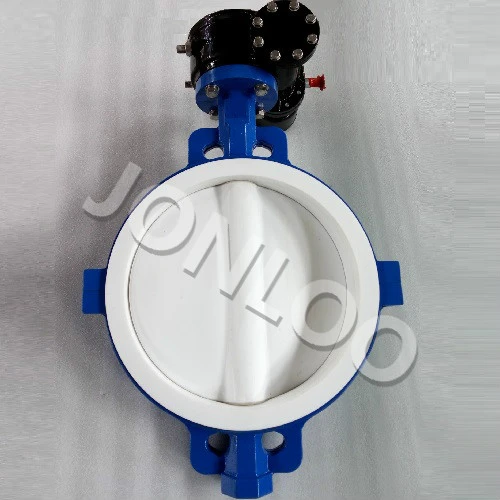Valves used in seawater systems are always subject to metal corrosion due to the exposure to seawater, so their life period gets reduced shorter. On top of that, there are maintenance hurdles from sea creatures like barnacles and oysters clinging to the valves and hampering their operation and sealing performance. Lining Vales, lined with fluorocarbon resin over the entire inner surface are a complete solution for all these issues.
All valve parts that come into contact with fluid, including the inner wall of the body, disc, and stem, are coated with fluorocarbon resin. Since metal is not exposed to fluid, metal corrosion, which was an inevitable issue with metal valves, will never again be a problem.
A lined valve's metallic parts are manufactured from relatively inexpensive materials such as ductile iron. In a fully lined valve, no media comes in contact with any metalparts. Lining materials. The primary valve lining materials are PFA (perfluoroalkoxy) and FEP (fluorinated ethylene- propylene). The melt process allows the liner to be locked into dovetails, locking grooves, and locking holes in the casting.
Lined valves are the safe and reliable solution to any level of corrosion hazard.They can be used as more economic alternatives to high-grade alloys in corrosive applications in the chemical, pharmaceutical, petrochemical, fertilizer, pulp and paper, and metallurgical industries.
The lining of the valves and fittings ensures an extremely high chemical resistance and longevity. The valves are leak-free and have minimal operating and maintenance costs. In addition to the standard FEP+PTFE lining, we can also offer anti-static lining from PFA+PTFE.
JONLOO offers a complete range of lined ball valves, ball check valves, swing check valves, diaphragm valves, butterfly valves, etc.
Special designs and materials are also available on request.

Next: What is Double Block and Bleed Valves ?
Previous: Diaphragm Valves Types
